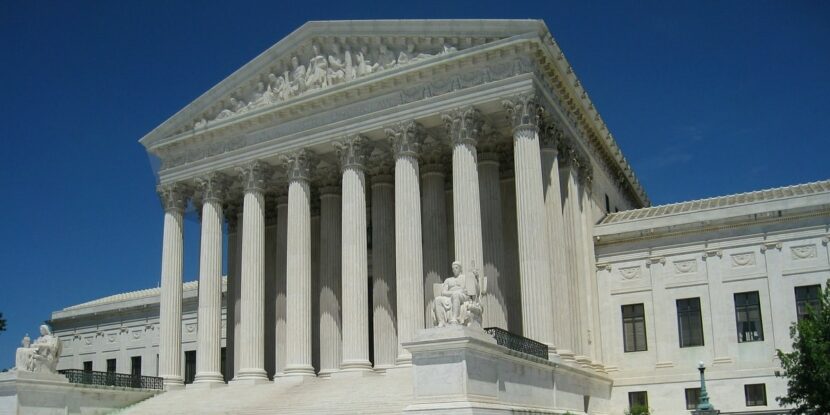Before going on recess until October, the Supreme Court concluded its session this morning by decisively ruling that religious institutions can receive public funds to be used for secular purposes — such as improving safety standards for a playground.
The highly-followed case, Trinity Lutheran Church of Columbia, Inc. v. Comer, involved the question of whether or not public funds from the state of Missouri could be used to reimburse Trinity Lutheran Church Child Learning Center for new playground surfaces made from recycled tires.
In 2012, the preschool and daycare center sought to participate in Missouri’s Scrap Tire Program and receive a grant to replace the school playground’s pea gravel surface with a new rubber surface. Since the state’s Department of Natural Resources, which ran the recycled tire program, had a policy of denying reimbursement grants to nonprofits owned or controlled to a religious entity, Trinity Lutheran’s application was rejected despite the fact that it ranked fifth of the 44 applicants in a grading process.
The Department sent a rejection letter stating that they were forbidden to grant the request to an organization affiliated with a church because of Article I, Section 7 of the Missouri Constitution, stating:
That no money shall ever be taken from the public treasury, directly or indirectly, in aid of any church, sect or denomination of religion, or in aid of any priest, preacher, minister or teacher thereof, as such; and that no preference shall be given to nor any discrimination made against any church, sect or creed of religion, or any form of religious faith or worship.
In a 7-2 ruling, the Court held: “The Department’s policy expressly discriminates against otherwise eligible recipients by disqualifying them from a public benefit solely because of their religious character.”
Chief Justice John Roberts delivered the opinion of the Court and was joined by Justices Kennedy, Alito, and Kagan, while Justices Thomas, Breyer, and Gorsuch filed concurring opinions. In their reasoning, the justices found that “this Court has repeatedly confirmed that denying a generally available benefit solely on account of religious identity imposes a penalty on the free exercise of religion.” They referred to a similar 1947 case which is now regarded as a preeminent in establishment clause jurisprudence:
In Everson v. Board of Education of Ewing, 330 U. S. 1 (1947), for example, we upheld against an Establishment Clause challenge a New Jersey law enabling a local school district to reimburse parents for the public transportation costs of sending their children to public and private schools, including parochial schools. In the course of ruling that the Establishment Clause allowed New Jersey to extend that public benefit to all its citizens regardless of their religious belief, we explained that a State “cannot hamper its citizens in the free exercise of their own religion. Consequently, it cannot exclude individual Catholics, Lutherans, Mohammedans, Baptists, Jews, Methodists, Non-believers, Presbyterians, or the members of any other faith, because of their faith, or lack of it, from receiving the benefits of public welfare legislation.”
The two remaining justices, Sotomayor and Ginsburg, filed a dissenting opinion written by Sotomayor. They argued that because Trinity’s preschool and daycare center serves as “a ministry of the Church and incorporates daily religion and developmentally appropriate activities into . . . [its] program,” it should not be allowed public funds:
Properly understood then, this is a case about whether Missouri can decline to fund improvements to the facilities the Church uses to practice and spread its religious views…The Church seeks state funds to improve the Learning Center’s facilities, which, by the Church’s own avowed description, are used to assist the spiritual growth of the children of its members and to spread the Church’s faith to the children of nonmembers. The Church’s playground surface—like a Sunday School room’s walls or the sanctuary’s pews—are integrated with and integral to its religious mission. The conclusion that the funding the Church seeks would impermissibly advance religion is inescapable.
Religious freedom advocates, such as Alliance Defending Freedom (ADF), the organization which argued the case on behalf of Trinity Lutheran, praised the majority decision. David Cortman, senior counsel at ADF, released a statement supporting the Court’s ruling:
The government should treat children’s safety at religious schools the same as it does at nonreligious schools…The decision today affirms that commonsense principle and the larger truth that government isn’t being neutral when it treats religious organizations worse than everyone else.
This morning’s decision now ensures that religious institutions are eligible to receive public funds for secular purposes. It is indeed a historic victory for all church-affiliated entities which have been discriminated against by the government.


